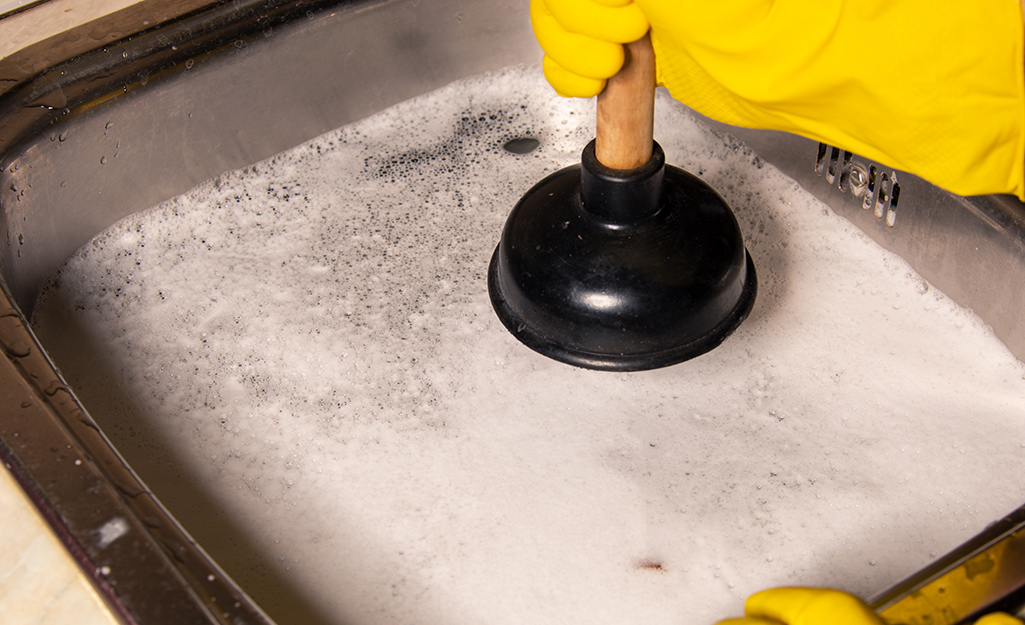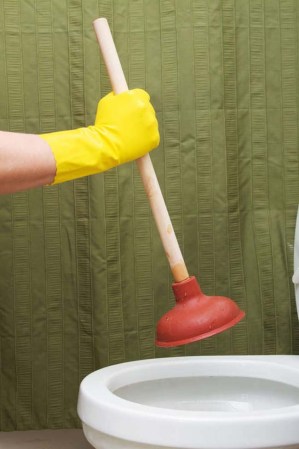This article listed below about Tips on How to Effectively Use a Plunger is without a doubt attention-grabbing. Have a go and make your own personal conclusions.

Intro
Correct maintenance of household drains is essential for stopping obstructions and guaranteeing smooth water circulation. Among the key tools in every house owner's toolkit is the bettor, alongside various drain cleansers made to take on stubborn clogs successfully. This article checks out just how to make use of plungers and drain cleansers properly to keep your drains streaming easily.
Area 1: Recognizing Bettors
Types of Plungers
There are several types of plungers offered, each created for various types of drains pipes and clogs. The most common types consist of cup plungers, flange plungers, and accordion plungers.
Exactly How Plungers Job
Bettors work on the principle of creating pressure and suction to remove blockages. When appropriately used over a drainpipe, they develop a vacuum cleaner that can take out particles or separate obstructions.
Selecting the Right Plunger
Choosing the ideal bettor relies on the type of drain and the nature of the blockage. Mug plungers are perfect for sinks and bathtubs, while flange plungers are better matched for bathrooms as a result of their design.
Usual Mistakes with Plungers
Preventing these blunders makes sure reliable plunging: improper seal around the drainpipe, not enough force, and not clearing bordering particles.
Section 2: Utilizing Plungers Properly
Preparation
Prior to plunging, ensure the bettor covers the drain completely and develops a limited seal. Clear any visible debris around the drainpipe opening.
Technique
Beginning with mild plunging movements to construct suction. Boost stress progressively, using a stable rhythm. Repeat as essential till the drain clears.
Fixing Tips
If plunging doesn't work, try changing the seal, applying petroleum jelly for a much better seal, or utilizing a different kind of plunger.
Section 3: Understanding Drain Cleaners
Types of Drainpipe Cleaners
Drain cleaners can be chemical or chemical. Chemical cleaners utilize solid chemicals to dissolve blockages, while enzymatic cleansers make use of all-natural enzymes to break down raw material.
Exactly How Drain Cleaning Company Work
Chemical cleansers react with obstructions to dissolve them, while chemical cleansers break down organic products like hair and grease without hurting pipelines.
Safety Factors to consider
Constantly wear gloves and eye defense when making use of chemical drainpipe cleansers. Make sure sufficient ventilation and adhere to producer directions very carefully.
Eco-Friendly Alternatives
Take into consideration making use of vinegar and baking soda or enzyme-based cleaners for environment-friendly alternatives that are safer for pipes and the environment.
Section 4: Using Drainpipe Cleaning Company Properly
Application Strategies
Put chemical cleaners straight right into the drain opening. Allow them to work for the advised time prior to flushing with hot water. Chemical cleaners should rest overnight.
Precautions
Stay clear of blending different sorts of cleaners, as this can produce poisonous fumes. Never make use of chemical cleaners along with a bettor, as splashing can occur.
Taking Care Of Stubborn Obstructions
For relentless obstructions, think about using a pipes serpent or calling a specialist plumber to stop damages to pipelines.
Verdict
To conclude, recognizing exactly how to make use of plungers and drainpipe cleaners efficiently is vital for maintaining healthy pipes systems. By picking the right tools and methods, homeowners can tackle minor blockages and stop significant plumbing issues down the line.
How To Properly Use A Plumbing Snake To Clear Drains
When any drain clogs in our home arise, we tend to gravitate toward the plunger and little else. In cases where the plunger and its vacuum-created pressure are not able to clear clogs, many immediately move to harmful chemicals or simply call their plumber to fix the issue.
we’re happy to help with all drain cleaning needs and concerns. This includes informing you on a few other home remedies you may have at your disposal for minor to moderate clogs, one of which is the use of a plumbing snake. Many people have never used one of these before – let’s go over the steps to take when your drain clogs and you have a plumbing snake available.
Attempt Plunger Use
The first step here, as we noted above, should indeed be to grab your plunger when you notice a drain clog and attempt to resolve it this way. If you’re unsure how to use a particular type of plunger, our plumbers can answer any questions you have. If this doesn’t do the trick, however, you move on to the snake.
Locate And Prepare Snake
A plumbing snake is a metal or plastic device that’s generally about a quarter of an inch thick. It’s design with significant extensions, meant to reach down into your clogged drain and push the clog out. Snakes also contain drain augers that will latch onto and push stubborn blockages.
If your plunger doesn’t clear a clog, locate your snake and bring it to the drain in question. We also recommend keeping a bucket nearby to collect the clog once you pull it out, plus we’d advise wearing goggles and possibly protective gloves.
Feed Snake
Once you’re ready to go, feed the snake slowly down the drain, using the crank device it comes with to keep it moving until it finds the clog. Once this happens, much of the clog will be latched onto the coil so you can pull it out, while the rest will simply break up and flow downward.
Detach Debris
Remove the snake slowly from the drain, and once you’ve done so, pick off any debris that’s stuck to the coil. This is another area where wearing gloves is a must.
Flush Drain
Finally, take a few minutes to ensure the snake has done its job correctly. If you’ve been using it on a toilet, flush the toilet a couple times and make sure everything flows well. If you’ve used it on a different drain, flush it with some room temperature water.
https://www.mybuddytheplumber.com/blog/how-to-properly-use-a-plumbing-snake-to-clear-drains/

Application Strategies
Put chemical cleaners straight right into the drain opening. Allow them to work for the advised time prior to flushing with hot water. Chemical cleaners should rest overnight.
Precautions
Stay clear of blending different sorts of cleaners, as this can produce poisonous fumes. Never make use of chemical cleaners along with a bettor, as splashing can occur.
Taking Care Of Stubborn Obstructions
For relentless obstructions, think about using a pipes serpent or calling a specialist plumber to stop damages to pipelines.
Verdict
To conclude, recognizing exactly how to make use of plungers and drainpipe cleaners efficiently is vital for maintaining healthy pipes systems. By picking the right tools and methods, homeowners can tackle minor blockages and stop significant plumbing issues down the line.
How To Properly Use A Plumbing Snake To Clear Drains
When any drain clogs in our home arise, we tend to gravitate toward the plunger and little else. In cases where the plunger and its vacuum-created pressure are not able to clear clogs, many immediately move to harmful chemicals or simply call their plumber to fix the issue.
we’re happy to help with all drain cleaning needs and concerns. This includes informing you on a few other home remedies you may have at your disposal for minor to moderate clogs, one of which is the use of a plumbing snake. Many people have never used one of these before – let’s go over the steps to take when your drain clogs and you have a plumbing snake available.
Attempt Plunger Use
The first step here, as we noted above, should indeed be to grab your plunger when you notice a drain clog and attempt to resolve it this way. If you’re unsure how to use a particular type of plunger, our plumbers can answer any questions you have. If this doesn’t do the trick, however, you move on to the snake.
Locate And Prepare Snake
A plumbing snake is a metal or plastic device that’s generally about a quarter of an inch thick. It’s design with significant extensions, meant to reach down into your clogged drain and push the clog out. Snakes also contain drain augers that will latch onto and push stubborn blockages.
If your plunger doesn’t clear a clog, locate your snake and bring it to the drain in question. We also recommend keeping a bucket nearby to collect the clog once you pull it out, plus we’d advise wearing goggles and possibly protective gloves.
Feed Snake
Once you’re ready to go, feed the snake slowly down the drain, using the crank device it comes with to keep it moving until it finds the clog. Once this happens, much of the clog will be latched onto the coil so you can pull it out, while the rest will simply break up and flow downward.
Detach Debris
Remove the snake slowly from the drain, and once you’ve done so, pick off any debris that’s stuck to the coil. This is another area where wearing gloves is a must.
Flush Drain
Finally, take a few minutes to ensure the snake has done its job correctly. If you’ve been using it on a toilet, flush the toilet a couple times and make sure everything flows well. If you’ve used it on a different drain, flush it with some room temperature water.
https://www.mybuddytheplumber.com/blog/how-to-properly-use-a-plumbing-snake-to-clear-drains/

We were guided to that report on How to Unclog Your Sink with a Plunger from an acquaintance on another blog. Sharing is nice. Who knows, you could be helping someone out. Thanks for being here. Please check our blog back soon.
About